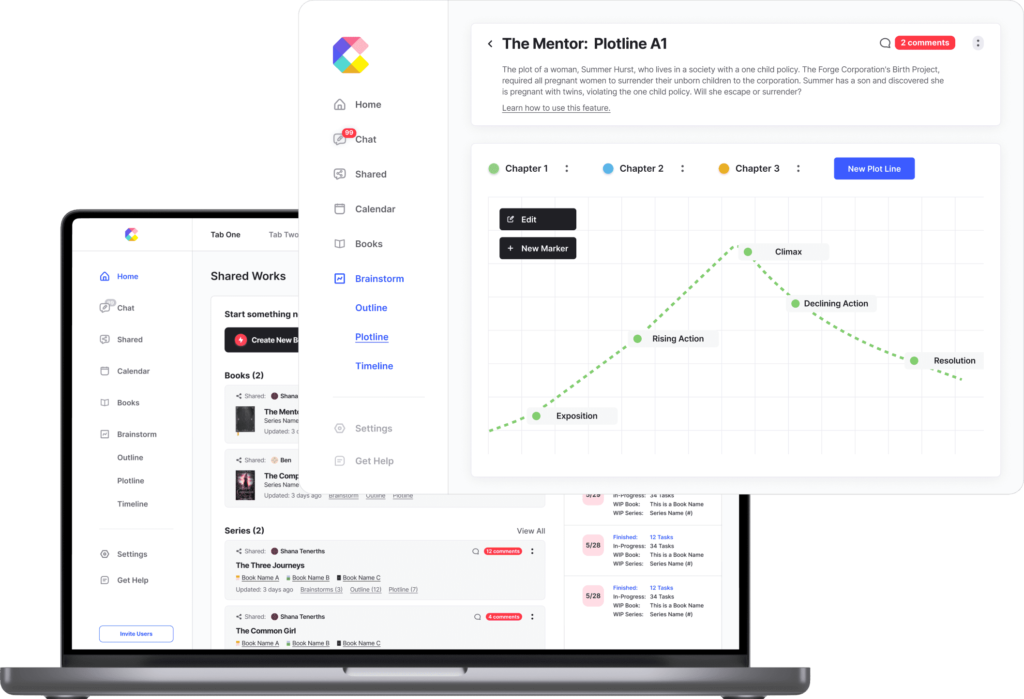Set Aside Dedicated Writing Sessions and Eliminate Distractions
Writing a novel is a journey that demands dedication, focus, and a well-structured routine. In Step 3 of our author’s guide, we delve into the importance of setting aside dedicated writing sessions and eliminating distractions. These two crucial elements play a significant role in shaping a productive writing routine that will propel your novel from conception to completion.
The Power of Dedicated Writing Sessions
Dedicated writing sessions are the cornerstone of any successful writing routine. They provide structure and purpose to your creative process, transforming sporadic bursts of inspiration into a consistent flow of words. Here’s why setting aside dedicated writing sessions is essential:
Consistency: Regular, dedicated sessions establish a writing habit. Consistency is the key to improving your writing skills and making steady progress on your novel.
Mental Preparation: Knowing you have a scheduled writing session helps you mentally prepare for the task. It signals to your brain that it’s time to switch into creative mode.
Efficiency: Dedicated sessions help you make the most of your writing time. When you have a set period to write, you’re less likely to waste time on unrelated tasks or distractions.
Goal Achievement: Each session becomes an opportunity to work toward your writing goals. Whether it’s completing a chapter, reaching a word count target, or tackling a specific scene, dedicated sessions help you accomplish your objectives.
Progress Tracking: Setting aside dedicated sessions allows you to track your progress more effectively. You can measure how much you’ve written, edited, or revised during each session, providing a tangible sense of accomplishment.
Creating Dedicated Writing Sessions
Creating dedicated writing sessions requires a thoughtful approach. Here are steps to help you establish effective writing sessions:
1. Choose a Consistent Time: Select a time of day that suits your schedule and aligns with your peak productivity hours. Whether it’s early morning, late at night, or during lunch breaks, consistency is key.
2. Set a Duration: Determine how long each writing session will last. It could be 30 minutes, an hour, or more, depending on your availability and energy level.
3. Create a Ritual: Develop a pre-writing ritual to signal the start of each session. This could include making a cup of tea, meditating, or reading a page from your favorite book to immerse yourself in the writing mindset.
4. Designate a Writing Space: Choose a quiet, comfortable, and distraction-free space for your writing sessions. Whether it’s a home office, a corner of your room, or a cozy café, ensure it’s conducive to creativity.
5. Eliminate Interruptions: Inform family members, roommates, or colleagues about your writing schedule and request uninterrupted time. Silence your phone and turn off notifications on your computer to minimize distractions.
6. Set Goals: Before each session, set clear goals for what you aim to accomplish. Having specific objectives keeps you focused and motivated.
7. Track Your Progress: Keep a writing journal or use writing apps to record your session results. Note the word count, ideas, or any challenges you encountered. Tracking your progress provides valuable insights into your writing habits.
8. Reward Yourself: Consider implementing a reward system for meeting your writing goals during each session. Rewards can be as simple as a treat, a walk, or a moment of relaxation.
9. Be Flexible: While consistency is crucial, be open to adjustments. Life may throw unexpected curveballs, requiring flexibility in your writing schedule.
Eliminating Distractions
In our modern, interconnected world, distractions are ubiquitous. They can derail even the most disciplined writers. To maintain a productive writing routine, it’s essential to identify and eliminate distractions effectively. Here’s how:
1. Identify Your Distractions: Begin by identifying the specific distractions that tend to disrupt your writing sessions. Common distractions include social media, email, household chores, noisy environments, and even your own thoughts.
2. Create a Distraction-Free Zone: Designate your writing space as a distraction-free zone. Remove or hide tempting distractions, such as your smartphone, snacks, or TV remote.
3. Disable Notifications: Silence or disable notifications on your computer and mobile devices while you write. This prevents incoming messages, emails, or alerts from interrupting your flow.
4. Use Website Blockers: If you find yourself constantly drawn to social media or websites, consider using website blockers. These tools allow you to temporarily block access to distracting websites during your writing sessions.
5. Set Boundaries: Communicate your writing schedule to those around you. Let family members, friends, or roommates know when you’ll be writing and request their support in minimizing interruptions.
6. Prioritize Tasks: Schedule your writing sessions during times when you’re less likely to be interrupted by other responsibilities or commitments. Prioritize your writing as a non-negotiable task.
7. Organize Your Space: Maintain an organized writing environment. A clutter-free space promotes mental clarity and minimizes potential distractions.
8. Manage Mental Distractions: Sometimes, distractions come from within. Racing thoughts, self-doubt, and anxiety can hinder your focus. Practice mindfulness techniques, such as deep breathing or meditation, to calm your mind before writing.
9. Take Breaks Wisely: While breaks can be beneficial for productivity, be mindful of how you use them. Set a timer for short, scheduled breaks during your writing sessions, and avoid getting sidetracked during these intervals.
10. Use Music or White Noise: Some writers find that listening to instrumental music or white noise can help drown out background distractions and create a focused atmosphere.
11. Review and Adjust: Periodically review your writing sessions to identify recurring distractions. Adjust your routine and environment as needed to address these issues.
Harnessing the Power of Dedicated Sessions and Distraction Elimination
By setting aside dedicated writing sessions and effectively eliminating distractions, you’ll transform your writing routine into a powerhouse of creativity and productivity. Each session becomes a valuable opportunity to make progress, and the quality of your work is likely to improve as well. Remember that creating an effective writing routine is a process that requires patience and self-awareness. As you fine-tune your sessions and refine your distraction-fighting strategies, you’ll find yourself steadily progressing toward your novel-writing goals. In the next step, we’ll explore techniques for staying motivated and overcoming common writing challenges.

Unlock your storytelling potential with Charlii! Whether you’re an aspiring author or a seasoned writer, Charlii is your ultimate creative companion.
Download now and start crafting captivating stories today. Your creativity awaits!



